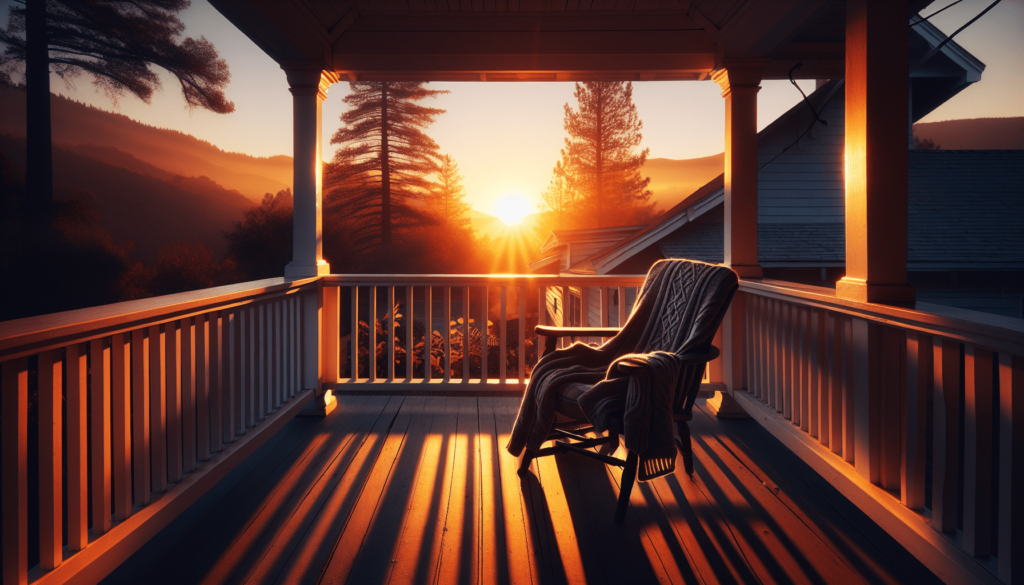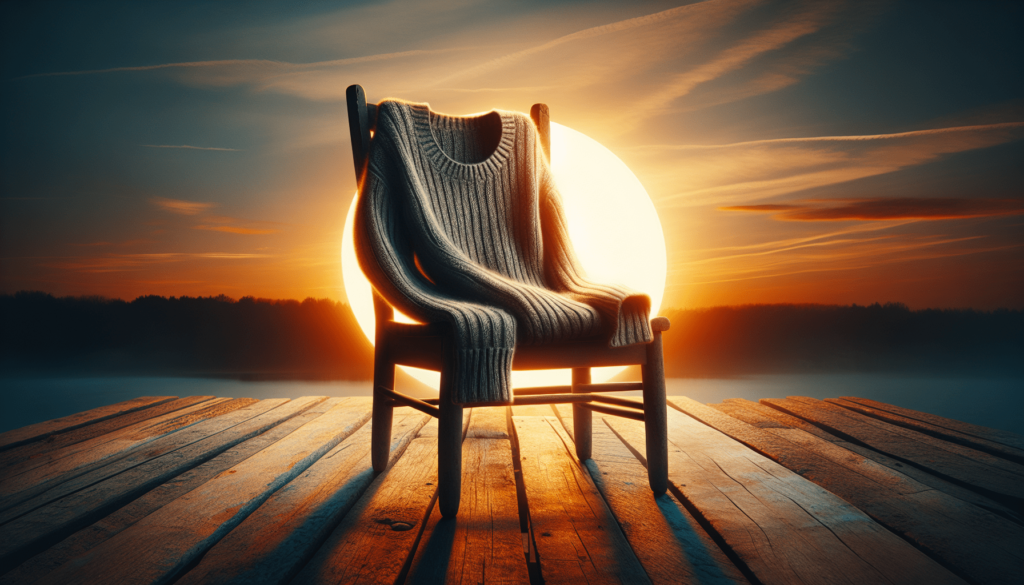
As evening slowly sets in, you might find yourself shivering, even if the day was warm and sunny. In “Why Do I Get Cold When The Sun Goes Down?”, you’ll explore the fascinating interplay between your body’s natural rhythms and the environment. As the sun dips below the horizon, the temperature drops and so does your body’s internal thermostat. Discover how factors like your metabolic rate, the clothing you choose, and the sudden lack of sunlight all team up to nudge you toward grabbing that cozy sweater.
Why Do I Get Cold When The Sun Goes Down?
Have you ever noticed that sudden chill in the air as the sun sets? One moment you’re basking in the warmth, and the next, you’re reaching for a sweater. It’s as if nature flips a switch, plunging the temperature. So, why do you get cold when the sun goes down? Let’s dive into the fascinating science behind this common experience.
The Basics of Temperature Change
Solar Radiation and Its Role
The Earth’s surface is warmed by solar radiation. During the day, sunlight heats up the ground and the air around you. The sun’s energy is absorbed by the soil, water bodies, buildings, and virtually everything you see. This energy is then released in the form of heat, keeping the surroundings warm.
Table: Solar Radiation Impact
| Time of Day | Solar Radiation | Surface Temperature |
|---|---|---|
| Morning | Increasing | Warming Up |
| Noon | Maximum | Highest Temperature |
| Evening | Decreasing | Cooling Down |
| Night | Absent | Lowest Temperature |
When the sun goes down, the primary source of heat, solar radiation, is no longer available. This cessation leads to a rapid drop in temperature.
Heat Dissipation
At night, the Earth starts to lose the heat it accumulated during the day. The ground and other surfaces release energy in the form of infrared radiation, a process known as radiative cooling. Without the sun to replace the lost heat, temperatures drop, making you feel colder.
The Role of Atmosphere
Atmospheric Layers
The Earth’s atmosphere plays a significant role in temperature regulation. Different atmospheric layers absorb and emit heat differently, affecting the overall temperature you experience.
- Troposphere: This is the layer where weather events occur, and temperature decreases with altitude.
- Stratosphere: Here, temperature generally increases with altitude due to the absorption of UV radiation by ozone.
- Mesosphere: Temperature decreases with altitude again.
- Thermosphere: Temperature increases significantly with altitude.
Most of our daily temperature fluctuations occur within the troposphere.
Chart: Atmospheric Layers and Temperature Changes
| Atmospheric Layer | Temperature Change |
|---|---|
| Troposphere | Decreases with altitude |
| Stratosphere | Increases with altitude |
| Mesosphere | Decreases with altitude |
| Thermosphere | Increases with altitude |
Air Density and Temperature
Air density also affects how you perceive temperature. As the sun sets, the air near the surface cools and becomes denser. Cooler, denser air can make you feel colder, especially if there’s wind involved, which can enhance the cooling effect on your skin.

Geographical Considerations
Proximity to Water Bodies
Are you close to a lake, river, or ocean? Water has a high specific heat capacity, meaning it heats up and cools down more slowly than land. During the day, water bodies absorb a lot of heat, but at night, they release it gradually. This can moderate the temperatures near them but can make the air feel colder if you are farther away from the immediate warming effect.
Urban vs. Rural Areas
Urban areas, full of concrete and asphalt, tend to retain heat longer than rural areas, which are usually covered with vegetation. Cities experience what’s known as the “urban heat island” effect, which can slightly mitigate the temperature drop at night compared to rural locales.
Biological Factors
Your Metabolism
Your body’s metabolism affects how you perceive temperature. Your metabolic rate typically slows down in the evening, especially when you are sleeping. This reduced metabolic rate means less heat is generated by your body, making you feel colder when the temperature drops.
Circadian Rhythms
Your circadian rhythm, or internal body clock, also plays a role. Your body temperature naturally decreases in the evening as part of the wind-down process for sleep. This physiological change can enhance the feeling of cold when the external temperature drops.

Clothing and Thermal Comfort
The Importance of Layers
Layered clothing can help you adapt to temperature changes more effectively. Each layer of clothing traps air, which provides insulation and reduces the loss of body heat.
Tips for Layering Clothing
| Layer | Function |
|---|---|
| Base Layer | Moisture-wicking, keeps skin dry |
| Mid Layer | Insulation, retains body heat |
| Outer Layer | Protection from wind and rain |
Material Matters
Clothing material plays a significant role in thermal comfort. Wool, for instance, is excellent for insulation and retaining heat, while materials like cotton may not provide sufficient warmth when it gets chilly.
Wind Chill Factor
What is Wind Chill?
Wind chill refers to the perceived temperature felt on your skin due to wind. Even if the thermometer says it’s 50°F, the wind can make it feel significantly colder.
Table: Wind Chill Effect
| Actual Temperature (°F) | Wind Speed (mph) | Feels Like (°F) |
|---|---|---|
| 50 | 10 | 42 |
| 50 | 20 | 37 |
| 30 | 10 | 21 |
| 30 | 20 | 16 |
Why Wind Exacerbates Cold
Wind increases evaporation of moisture from your skin, which requires heat energy. As your body loses heat more rapidly, you feel colder. Wind also disrupts the thin layer of warm air surrounding your body, further enhancing the cooling effect.
Psychological Perception
Mental Expectation
Your mindset can also affect how cold you feel. If you anticipate the drop in temperature and are prepared for it, you might not feel as cold as if you were caught off guard. This phenomenon is tied to the psychological aspect of thermal comfort.
Memory of Warmth
Recalling the warmth of the day can make the sudden coolness more stark in contrast. The difference in temperature feels more pronounced because you’re comparing it to a previously warmer state.
Technological Solutions
Heating Systems
Modern technology can help mitigate the discomfort of a temperature drop. Central heating systems, space heaters, and even heated blankets can keep you cozy when it gets cold after sunset.
Weather Apps and Forecasting
Keeping an eye on weather forecasts and using apps to track temperature changes can help you prepare accordingly. Being informed about expected temperature drops can be invaluable in planning your activities and clothing choices.
The Impact of Climate Change
Shifts in Temperature Patterns
Climate change is affecting temperature patterns globally. Unpredictable weather, more extreme temperature fluctuations, and altered seasonal patterns are all consequences that could impact how cold it feels when the sun goes down.
Adapting to Changes
As we adapt to these changes, understanding the underlying principles of temperature variation can help us cope better. Awareness and adaptive strategies, like appropriate clothing and preparedness, are key to managing your comfort in changing climates.
Conclusion
Understanding why you get cold when the sun goes down involves a combination of environmental, biological, and psychological factors. From the basic principles of solar radiation and atmospheric influence to the details of personal metabolism and clothing choices, various elements contribute to this everyday phenomenon.
By becoming more aware of these factors, you can better prepare for and mitigate the chill that accompanies sunset. Whether it’s through choosing the right layers of clothing, utilizing technology, or simply being more mindful of your body’s rhythms, staying warm as the sun sets becomes a more manageable task.
Next time you feel the temperature drop with the setting sun, you’ll know exactly why it happens and what you can do to stay cozy and comfortable!
